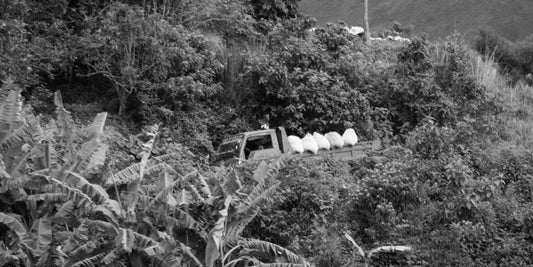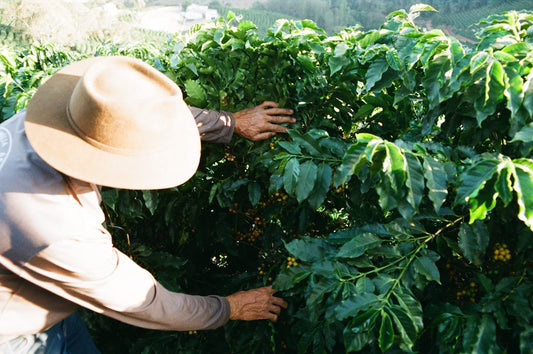
Colombia Nestor Lasso
Whenever we select and buy a coffee here at Roastworks we always get an info sheet from the importer. We're not the only roastery to receive stuff like this, it's standard practice. The sheet includes information on how and where the coffee has been processed, and often has a description of how the farm operates and anything that makes it unique. We use these details to write up our own info sheets to go alongside new and existing coffees.
The info sheet we got for this coffee was a bit different, and we wanted to share it as a blog post. The producer of this coffee wrote a note that was included in the sheet we got sent by Cata Export (the importer we bought this coffee through).
It perfectly sums up what we say about the positive change speciality coffee is having in coffee growing communities. And comes straight from a coffee producer.
Nestor's Words
"I grew up in a vereda (locality, editor's note.) called Normandia, near the town of Pitalito in the south of the Huila region. I always grew up on the farm and since I can remember the region has always been a coffee zone.
Here I had a very healthy childhood, everyone knows each other and it's safe. The memories I have of my childhood are of playing in nature, playing hide and seek and I have always been super happy to be here.
In general, being a coffee producer is poorly paid and it is not very attractive. The only thing that allows producers not to starve is to eat the fruits and vegetables produced on the farm. In terms of material goods, we only have access to what is strictly necessary. Many young people therefore prefer to go to town to find an office job or a less physically demanding job because they think that the coffee is not worth it.
Beyond what specialty coffee brings economically, I have always had a passion for production. When I realized that specialty coffee offered a real possibility of economic development, and that in addition I could develop my knowledge of coffee production, and in particular the processes, I really got into it.
I understand more or less how the market works due to the close partnership we have with Cat and Pierre but also social networks allow us to see who is buying our coffees. They also allow us to see how specialty coffee is marketed in Europe.
Cat told me the importance of the sensory side of the business and she encouraged me to learn to cup to control the quality of what is produced and to understand the impact of the processes and whether they improve or not in the cup.
Also, in Colombia there is a program we followed funded by the Colombian state and today this program is recognized as the best coffee growing school in Latin America, called SENA.
We learned a lot at SENA, me and my brother. All the theoretical bases, the science of coffee processing… everything is taught there. But the reality of the job of coffee producer is learned in the field.
We must not forget that the price of coffee is very high at the moment reason why lot of producers want to know how we work, but we quickly identify people who are really motivated to produce specialty coffee, who come to ask us questions to learn with us and those who only see it as a temporary opportunity to earn money.
What really makes the difference is the passion that the producer can have for the coffee. If you're not naturally passionate, you'll never get the trick!
Often, some coffee growers here have a lot of money because they have a lot of land and the best machines possible. But specialty coffee does not interest them, they do not see the point of changing because they are not as passionate about coffee as we are.
I have seen that specialty coffee consumption has changed a lot in recent years in the country. Until recently, Colombians only drank coffee by-products, anything that could not be exported. But people here have realized that coffee is a much more noble product than it seems. Many producers today keep part of their harvest to roast it themselves and drink it at home. All the specialty coffee craze has really brought about a different way of looking at coffee."




